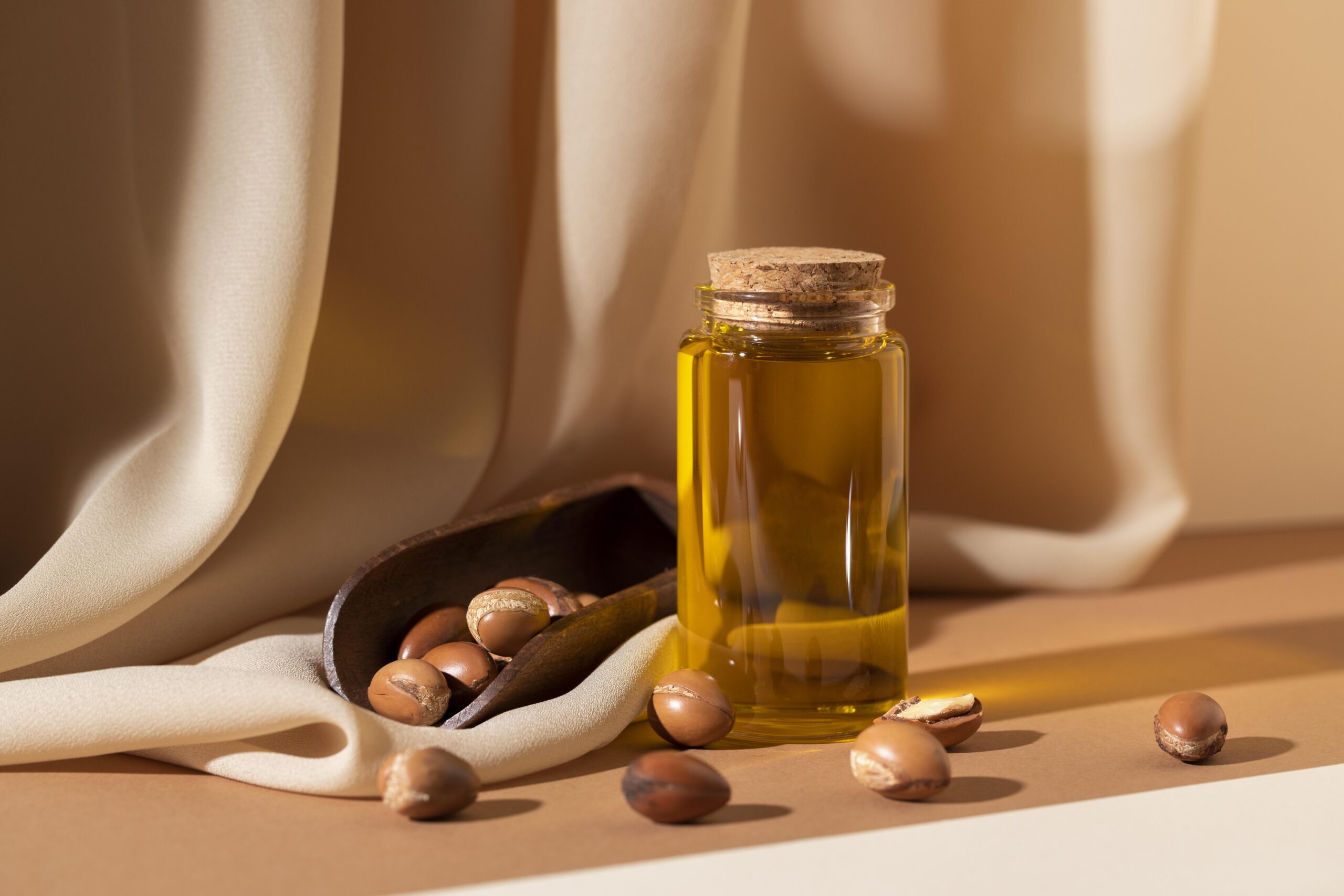
Argan oil benefits for healthy skin and hair
Argan oil is a product derived from the nuts of the argan tree, a tree that is indigenous to Morocco. This oil can be used in various ways, including for cooking, as well as for skin and hair care. It is available in oil form or as an ingredient in various skin and hair care products, such as creams and shampoo.
Argan oil has various benefits for the skin, including improving hydration, elasticity, and wound healing. It can also be used for hair care, with anecdotal evidence suggesting it can add moisture, improve manageability, and enhance shine, among other benefits.
To use argan oil, people can apply it directly to their skin or hair, starting with a small amount and increasing as necessary. It is also safe to consume if it is specifically made for food use, but individuals with nut allergies should avoid using this product. Additionally, people should store argan oil away from direct sunlight and not use it if it has a bad smell. Contact dermatitis can also be a potential side effect of using argan oil.
Argan oil can provide several benefits for the skin, such as improving hydration by restoring the skin’s barrier function and retaining moisture. It may also enhance skin elasticity, which can help reduce the appearance of stretch marks. Furthermore, animal studies have indicated that argan oil may help in the treatment of second-degree burn wounds, but further research on humans is necessary to evaluate this benefit further.
Although there is currently insufficient clinical evidence to indicate specific benefits of argan oil for hair, individuals may still use it anecdotally for the following purposes:
- Providing lightweight moisture that does not weigh hair down
- Improving hair elasticity and manageability
- Preventing hair breakage
- Enhancing hair shine
- Reducing frizz
Argan oil can be used in different ways, depending on the purpose. Here are some tips on how to use argan oil:
- For skin care: Apply a small amount of argan oil to your fingertips and gently massage it onto your face or other parts of the body. You can also mix argan oil with your favorite moisturizer or serum for added benefits.
- For hair care: Apply a few drops of argan oil to your palms and then run your hands through your hair, focusing on the ends. You can also mix argan oil with your shampoo or conditioner for added moisture and nourishment.
- As a leave-in conditioner: Apply a few drops of argan oil to your damp hair, comb through, and leave it in. This will help to tame frizz and keep your hair looking shiny and healthy.
- For cooking: Use argan oil as you would any other cooking oil. It is great for drizzling over salads, roasting vegetables, or frying eggs.
Remember to start with a small amount of argan oil and gradually increase it as necessary, especially if you have never used it before. Also, be sure to choose a high-quality, pure argan oil product and store it in a cool, dark place away from direct sunlight.
While argan oil is safe for consumption when used for cooking, it is important to only use argan oil specifically made for food consumption. When purchasing argan oil for cooking or consumption, ensure that it is from a trusted source and meets food safety standards.
It is crucial to store argan oil properly, away from direct sunlight and heat, and to discard it if it has a bad smell. As argan oil is derived from tree nuts, individuals with nut allergies should avoid using it.
Some individuals may experience contact dermatitis from using argan oil, which can cause symptoms such as rash, redness, and skin itchiness. Therefore, it is important to conduct a patch test before using argan oil topically and to discontinue use if any adverse reactions occur.

